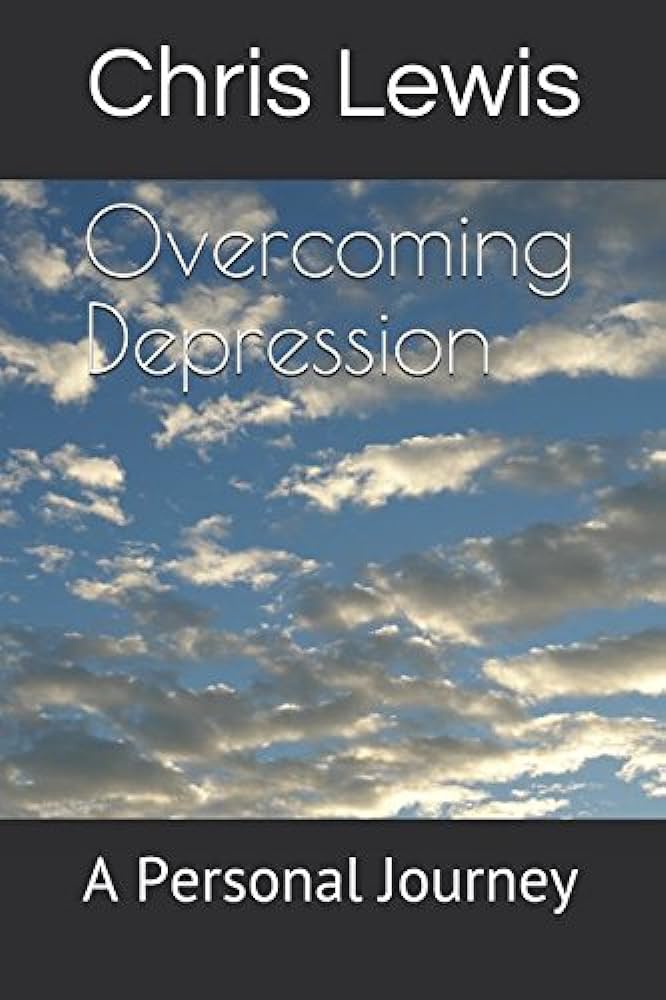In “Overcoming Depression: A Personal Journey to Healing and Happiness,” you will embark on a transformative and inspiring exploration of one individual’s battle with depression and their path towards finding healing and true happiness. This insightful narrative sheds light on the challenges faced by those living with depression, while offering practical and uplifting strategies to overcome this debilitating condition. Join this remarkable journey as you discover the power of resilience, self-compassion, and the pursuit of personal growth, all leading to a renewed sense of joy and contentment.

Understanding Depression
Defining Depression
Depression is a mental health condition that can affect anyone, regardless of age, gender, or background. It is a common and serious medical illness that negatively impacts how you feel, think, and act. While occasional feelings of sadness or low mood are a normal part of life, depression is different. It is characterized by persistent feelings of sadness, hopelessness, and a loss of interest in activities that were once enjoyable.
Causes of Depression
Depression can have various causes, and it is often a combination of genetic, biological, environmental, and psychological factors. Some individuals may have a higher risk of developing depression due to a family history of the condition, while others may experience depression as a result of experiencing trauma, stressful life events, or chronic medical conditions. Imbalances in certain neurotransmitters, such as serotonin, dopamine, and norepinephrine, also play a role in the development of depression.
Common Symptoms of Depression
Recognizing the symptoms of depression is crucial in seeking help and finding the appropriate treatment. Common symptoms of depression can manifest both physically and emotionally. These may include persistent feelings of sadness, irritability, changes in appetite or weight, difficulty concentrating, loss of energy, sleep disturbances, feelings of guilt or worthlessness, and thoughts of death or suicide. It is important to note that everyone’s experience of depression may differ, and not all individuals will exhibit the same symptoms.
Seeking Help
Recognizing the Need for Help
Acknowledging that you may need help for depression can be a difficult and courageous step. It is important to remember that seeking help does not mean you are weak or powerless. It shows strength and a desire to improve your well-being. If you have been experiencing prolonged feelings of sadness, hopelessness, or find it difficult to function in your daily life, it may be time to reach out to a mental health professional.
Types of Mental Health Professionals
There are several types of mental health professionals who can provide support and treatment for depression. Psychologists, psychiatrists, counselors, and social workers are among the professionals who specialize in mental health. Each professional has a unique approach and skill set, so it is important to research and find the right fit for you. It’s also worth noting that some professionals may specialize in specific therapeutic approaches, such as cognitive behavioral therapy or psychodynamic therapy.
Finding the Right Therapist
Finding the right therapist is essential in helping you navigate through your journey of healing and recovery. Consider factors such as their experience with depression, their therapeutic approach, and their compatibility with you. It is also important to find a therapist who creates a safe and non-judgmental space for you to share your thoughts and feelings. Don’t be afraid to ask for recommendations, read reviews, and have initial consultations with potential therapists to ensure you find someone who understands and supports you.

Therapeutic Approaches
Cognitive Behavioral Therapy (CBT)
Cognitive Behavioral Therapy (CBT) is a widely recognized and effective therapeutic approach for treating depression. CBT helps individuals identify and change negative thought patterns and beliefs that contribute to their depressive feelings. It focuses on developing coping strategies and problem-solving skills to manage and overcome depressive symptoms. By challenging negative thoughts and replacing them with more positive and realistic ones, CBT empowers individuals to take control of their thoughts and emotions.
Interpersonal Therapy (IPT)
Interpersonal Therapy (IPT) is another therapeutic approach commonly used in the treatment of depression. IPT focuses on improving interpersonal relationships and resolving conflicts that may contribute to depressive symptoms. By addressing difficulties in communication, grief and loss, and role transitions, IPT helps individuals build healthy and supportive relationships. This approach recognizes the importance of social connections in mental well-being and aims to strengthen them as a means of healing.
Psychodynamic Therapy
Psychodynamic therapy explores the roots of depression by examining unconscious thoughts, feelings, and emotions. This therapy helps individuals gain insight into how early experiences and relationships may influence their current depressive symptoms. Psychodynamic therapy aims to uncover and resolve unresolved conflicts and unresolved emotions that contribute to depression. By gaining a deeper understanding of oneself, individuals can make meaningful changes in their thoughts, behavior, and relationships.
Medication Options
Types of Antidepressants
Antidepressant medication can be an effective treatment option for individuals with moderate to severe depression. There are several different classes of antidepressants, including selective serotonin reuptake inhibitors (SSRIs), serotonin-norepinephrine reuptake inhibitors (SNRIs), tricyclic antidepressants (TCAs), and monoamine oxidase inhibitors (MAOIs). Each class of medication works differently to regulate neurotransmitters in the brain and alleviate depressive symptoms. It is important to consult with a psychiatrist to determine the most suitable medication for your specific needs.
Effectiveness and Side Effects
While antidepressants can be highly effective in reducing depressive symptoms, it is important to be aware of potential side effects. Common side effects may include nausea, dizziness, headaches, weight changes, and sexual dysfunction. It is essential to discuss these potential side effects with your psychiatrist and report any concerns or adverse effects. Finding the right medication and dosage may require some trial and error, so it is crucial to maintain open communication with your healthcare provider throughout the process.
Working with a Psychiatrist
Working with a psychiatrist is vital when exploring medication options for depression. Psychiatrists are medical doctors specializing in mental health and have the expertise to evaluate your symptoms, prescribe medications, and monitor their effectiveness. A psychiatrist will consider your unique circumstances, medical history, and any potential interactions or contraindications with other medications you may be taking. Regular appointments and ongoing communication with your psychiatrist will ensure that your medication regimen is optimal for your well-being.

Lifestyle Changes
Exercise and Physical Activity
Physical activity and exercise have been shown to have a positive impact on mental health, including the management of depression. Regular exercise promotes the release of endorphins, which are natural mood enhancers. Engaging in activities such as walking, jogging, swimming, or yoga can help reduce depressive symptoms and improve overall well-being. Start with small, achievable goals and gradually increase your level of physical activity to experience the benefits it has on your mental health.
Healthy Eating Habits
While there is no specific diet to cure depression, adopting healthy eating habits can contribute to overall well-being. Focus on incorporating nutrient-dense foods into your diet, such as fruits, vegetables, whole grains, lean proteins, and healthy fats. Avoid excessive consumption of processed foods, sugary snacks, and caffeine, as these can negatively impact mood. Eating a well-balanced diet can provide your body with the necessary nutrients to support brain health and the production of neurotransmitters associated with positive mood.
Establishing a Sleep Routine
Maintaining a healthy sleep routine is crucial for managing depression. Establish a regular sleep schedule, aiming for seven to nine hours of quality sleep each night. Create a relaxing bedtime routine by avoiding stimulating activities before bed, such as excessive screen time or consuming caffeine. Make your sleep environment comfortable and conducive to restful sleep. If you experience difficulties with sleep, such as insomnia or hypersomnia, consult with a healthcare professional for guidance and potential interventions.
Building a Support System
Opening Up to Loved Ones
Building a support system is an essential part of managing depression. Opening up to trusted loved ones about your struggles can provide emotional support, understanding, and reassurance. Share your thoughts and feelings with those you feel comfortable with, and don’t be afraid to ask for help when needed. Remember, you don’t have to face depression alone, and allowing others to support you can make a significant difference in your healing journey.
Joining Support Groups
Joining support groups, whether in-person or online, can provide additional resources and a sense of community for individuals experiencing depression. In support groups, you can connect with others who have similar experiences, share coping strategies, and offer mutual support. Hearing different perspectives and stories of resilience can instill hope and inspire personal growth. Support groups can be a safe space for individuals to express themselves, learn from others, and develop a sense of belonging.
Online and Helpline Resources
In addition to personal connections, there are numerous online resources and helplines available for individuals seeking help and support for depression. Websites, forums, and helplines operated by mental health organizations or professional associations can provide information, resources, and guidance. They can also connect you with mental health professionals or provide crisis intervention if needed. Remember to ensure that the resources you access are reputable and trustworthy.

Managing Stress
Identifying Stress Triggers
Stress can exacerbate depressive symptoms, so it is important to identify and manage stress triggers. Take time to reflect on situations, events, or people that consistently cause stress in your life. By recognizing these triggers, you can develop strategies to cope with them more effectively. It may involve setting boundaries, practicing assertiveness, or seeking support from loved ones or professionals. Identifying and addressing stressors can contribute to a more balanced and fulfilling life.
Practicing Relaxation Techniques
Incorporating relaxation techniques into your daily routine can help alleviate stress and promote emotional well-being. Techniques such as deep breathing exercises, progressive muscle relaxation, and guided imagery can induce a state of relaxation and calmness. Engaging in activities such as yoga, meditation, or engaging hobbies can also serve as effective stress-relief strategies. Find what works best for you and make time for relaxation in your daily schedule.
Mindfulness and Meditation
Practicing mindfulness and meditation can be powerful tools in managing depression and reducing stress. Mindfulness involves bringing your attention to the present moment, without judgment. By cultivating awareness and acceptance of your thoughts and emotions, you can develop a greater sense of control over your mental state. Meditation practices, such as focused breathing or loving-kindness meditation, can enhance self-compassion, reduce rumination, and improve overall well-being. Consider incorporating mindfulness and meditation into your daily routine to experience their benefits.
Self-Care Practices
Engaging in Hobbies and Creative Outlets
Engaging in hobbies and creative outlets can provide a sense of fulfillment, joy, and purpose, all of which are important in managing depression. Find activities that bring you pleasure and allow you to express yourself creatively. Whether it’s painting, writing, playing an instrument, or gardening, these activities can serve as outlets for emotions and provide a much-needed escape from the challenges of depression. Make time for these activities regularly, and allow yourself to experience the positive impact they can have on your mental well-being.
Taking Time for Yourself
Amidst the responsibilities and demands of daily life, it is crucial to prioritize self-care. Take time for yourself and engage in activities that promote self-renewal and relaxation. This can include taking a warm bath, reading a book, going for a walk in nature, or simply sitting in silence. Self-care allows you to recharge both physically and emotionally, and it fosters a greater sense of self-compassion and self-acceptance. Remember that self-care is not selfish but essential for your overall well-being.
Practicing Self-Compassion
Practicing self-compassion is a fundamental aspect of healing and overcoming depression. Treat yourself with kindness, understanding, and acceptance. Acknowledge that you are doing your best and that it is okay to have bad days. Challenge self-critical thoughts and replace them with more compassionate and realistic ones. Celebrate your achievements, no matter how small, and practice self-forgiveness. Developing self-compassion can strengthen your resilience and create a more positive outlook on life.

Challenging Negative Thoughts
Recognizing Cognitive Distortions
Negative thoughts often accompany depression and can perpetuate feelings of hopelessness and despair. Cognitive distortions are specific patterns of thinking that contribute to these negative thoughts. Examples of cognitive distortions include all-or-nothing thinking, overgeneralization, and jumping to conclusions. By becoming aware of these distortions, you can challenge their validity and replace them with more balanced and realistic thoughts.
Replacing Negative Thoughts with Positive Ones
Replacing negative thoughts with positive ones may seem challenging at first, but it is an essential part of managing depression. Practice reframing negative thoughts by challenging their accuracy and exploring alternative viewpoints. Replace self-criticism with self-encouragement and focus on your strengths and accomplishments. Surround yourself with positive influences, such as uplifting books, music, or affirmations. Over time, these positive thoughts will become more ingrained, leading to a shift in mindset.
Affirmations and Gratitude Exercises
Affirmations and gratitude exercises are powerful tools in challenging negative thoughts and cultivating a more positive mindset. Affirmations are positive statements that affirm your worth, capabilities, and potential. Repeat affirmations daily to reinforce positive beliefs about yourself. Gratitude exercises involve intentionally focusing on things you are grateful for. This practice can shift your attention away from negatives and enhance your appreciation for the positive aspects of your life.
Rebuilding Meaning and Purpose
Setting Goals and Priorities
Depression can often rob individuals of a sense of purpose and meaning in life. Setting goals and establishing priorities can help rebuild a sense of direction and motivate personal growth. Start by setting small, achievable goals that align with your values and interests. These goals can range from daily accomplishments to long-term aspirations. By working towards meaningful objectives, you can regain a sense of purpose and fulfillment in your life.
Exploring New Interests and Passions
Exploring new interests and passions can spark excitement and breathe new life into your journey of healing. Try out activities or hobbies that have always intrigued you or pique your curiosity. Learn a new skill, join a club or organization, or enroll in a class. Exploring new interests can open doors to new experiences, connections, and personal growth. Embrace the opportunity to discover new aspects of yourself and create positive change in your life.
Finding Meaning in Everyday Activities
Finding meaning in everyday activities is a powerful way to cultivate a sense of purpose and satisfaction. Engage fully in the tasks, chores, or responsibilities you encounter daily. Recognize the value and importance of these activities by viewing them as opportunities for growth and contribution. Whether it’s cooking a meal, taking care of household chores, or engaging in your profession, infusing meaning into these activities can transform mundane tasks into purposeful endeavors. Embrace the present moment and find joy in the simple pleasures of life.
In conclusion, depression can be a challenging and overwhelming experience, but it is essential to remember that there is hope and support available. By understanding depression, seeking help, exploring therapeutic approaches, considering medication options, implementing lifestyle changes, building a support system, managing stress, practicing self-care, challenging negative thoughts, and finding meaning and purpose, you can embark on a journey of healing and happiness. Remember, you are not alone, and reaching out for support is a courageous step towards a brighter future. Just remember to take it one day at a time, be patient with yourself, and always prioritize your mental well-being.